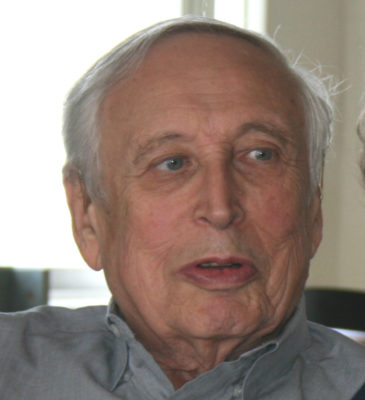 My dear friend Ian Kerr died last night. It wasn’t a surprise–complications from cancer had him in hospital in a parlous state for some time–but it’s still a kick in the gut.
My dear friend Ian Kerr died last night. It wasn’t a surprise–complications from cancer had him in hospital in a parlous state for some time–but it’s still a kick in the gut.
Ian was one of the smartest, most joyous, and luminous people I knew. To call him a great friend understates it. We also wrote together, and did stuff: Along with Ryan Calo, the three of us founded We Robot and edited a book on Robot Law.
Ian’s most recent article, The Death of the AI Author (co-authored with Carys Craig) is not only an answer to a copyright challenge that has endured for a couple of decades, but is one of the most elegantly clever law articles I have ever read.
More importantly, Ian was just thoroughly nice and good.
Ian wore his brilliance lightly. He gave his bio on his personal homepage as this:
Unpacking social conventions can be pretty hilarious sometimes.
For example, it is standard practice for every academic to author a never-ending laundry list of what other people might perceive as our most impressive accomplishments. We call this our bio.
The conventional tone of what we say about ourselves in these things is so ridiculous that we write them as though someone else wrote them for us (kind of like when our universities announce that they would like to “nominate” us for awards but then ask us to write a 25 page application to bring money into the university). Once written and posted to a website, our bios are available for conference moderators and other strangers to introduce us as though they know us. The most delightful part of this odd scholarly exercise is that we get to sit there during our introduction and act appropriately modest and sometimes even shocked that they knew all of this detail — as if we had no idea that they would mention any of these things about us.
If you came to this portion of the site to participate in this strange social convention, you can find my conventional bio here.
But to have a more honest sense of the sweet serendipity of it all, the bio more to my liking goes something like this…
In the early-mid 1980s, ian not only chose to have BIG HAIR, he came very close to making another big mistake. He almost became a dentist (not that there is anything wrong with it). Nearing the end of the 11th hour, he somehow realized that schlepping teeth was something his dad wanted for him, but not something he wanted for himself. In what must have felt like an epiphany to a twenty year old, he realized that every single elective he ever took during his science degree was in philosophy. Upon graduation, bathed in uncertainty and existential angst typical of that stage of things, he made the bold (if not foolhardy) move of bailing on a career in the health sciences and enrolling instead in honours philosophy. His parents, while supportive, must have taken a deep breath.
During his studies in philosophy he fell in love with the law and was eventually sweet-talked into going to law school by this man while completing his doctorate in philosophy and teaching 800 students. Upon completing his academic degrees, ian was in the process of arranging to spend his articling year in toronto, writing appellate facta for the crown, when this man talked him into articling at what has since become this firm. He was then tricked by the then dean of western law to test-out a new three way interdisciplinary appointment in philosophy, law and information technology. This prank profoundly altered the course of his intellectual life, for which he will be eternally grateful. Soon after, with many friends in common, he met the only other canadian common law colleague in the burgeoning field of techlaw, michael geist. A few years later, that guy who talked ian into going to law school became geist’s dean. The rest is, as they say, history.
In contrast, here’s how U. Ottawa described him on his official homepage:
Dr. Ian Kerr is Full Professor and Canada Research Chair in Ethics, Law, and Technology at the University of Ottawa, where he holds a unique four-way appointment in Law, Medicine, Philosophy, and Information Studies. His research interrogates legal and ethical issues surrounding the human-machine merger. At one end of the continuum, he examines the social implications of delegating human tasks and decision-making to machines, at the other end, of putting machine parts into people. His current research focuses on artificial intelligence (AI) decision-making, military robots, driverless cars, robotic surgery, automated medical diagnostics and implantable medical devices. His work on these emerging technologies has contributed to the development of a new field of study: AI and robotics law and policy. He also continues to play a leading role on the global stage in rethinking privacy and surveillance law and policy.
Dr. Kerr is regularly invited to consult and collaborate with international institutions, governments, NGOs, and academic/professional institutes on the ethics, regulation and governance of emerging technologies. Some recent examples include: the United Nations, the World Economic Forum, the International Conference of Data Protection and Privacy Commissioners, the White House, the office of the Privacy Commissioner of Canada, the Uniform Law Conference of Canada, the National Judicial Institute, the Standing Parliamentary Committee for Access to Information, Ethics, and Technology, and the Standing Senate Committee for Social Affairs, Science, and Technology.
Dr. Kerr’s prolific contributions to the field integrate philosophical, technological, and legal frameworks and methods. His interdisciplinary research has attracted more than eight million dollars in support from the Canada’s Tri-Council and other agencies. SSHRC and the Canada Research Chair program have funded ongoing work on AI, robotics, artificial organs and medical devices. Transport Canada funds his work on autonomous and connected vehicles. The Department of National Defence funds his research on autonomous weapon systems.
Dr. Kerr has also spearheaded several large team-based research initiatives on privacy and surveillance and was recognized for his outstanding contributions to scholarship with the Karen Spector Memorial Award for Excellence in Privacy Law. His seminal work, Lessons from the Identity Trail, published by Oxford University Press under its first ever Creative Commons licence, assembles the work of philosophers, ethicists, feminists, cognitive scientists, lawyers, cryptographers, engineers, policy analysts, government policy makers and privacy experts from around the globe. Together, they collaborate on a range of topics including: human implantable radio frequency identification chips, ubiquitous computing, predictive data-mining, selective self-presentation, gender identity, the societal impact of web-camming, national identity cards, the social value of privacy and its constitutional limits, the perceived tension between privacy and national security, and a five-country comparative study surveying the place of anonymity across the legal domain.
Dr. Kerr is renowned at the Faculty of Law for his dedication as a teacher and mentor. His devotion to teaching has earned him eight awards and citations, including the University of Ottawa Excellence in Education Prize, the Bank of Nova Scotia Award of Excellence in Undergraduate Teaching, the University of Ottawa AEECLSS Teaching Excellence Award and the University of Western Ontario, Faculty of Graduate Studies, Award of Teaching Excellence. His courses—Building Better Humans? and The Laws of Robotics—have garnered international attention, with regular invitations to lecture and teach at prestigious institutions across North America, Europe, the Middle East and Asia. He is the co-director of the Canada Research Chair Laboratory in Law and Technology, a facility supporting the training of 40 researchers. In addition to supporting and supervising a steady stream of Masters, PhDs and PostDocs, he also hires a select group of 6-8 undergraduate research assistants as part of the Centre for Law, Technology, and Society’s 1L Techno-ship program, attracting the law school’s top talent every year. He is known for immersing his students in cutting edge research, cultivating deep academic interest and involving them in hands-on skill-developing opportunities, including: developing research materials, co-authoring publications, accompanying him to government and court appearances, and, with his top graduate students, co-teaching university courses. He is always in search of exceptional students to join his research team.
Ian was not just a fountain of ideas, a stalwart friend, and a great collaborator, he was also a mentor to many graduate and law students. He leaves behind him not just a large legacy of publications and projects, but of students whose careers took shape thanks to his generosity and intellectual alchemy.
Ian’s long-time colleague at UOttawa Michael Geist has a fuller remembrance of Ian here. Ian leaves a hole nothing can fill.

 That, apparently, is how long we’ve been married as of today.
That, apparently, is how long we’ve been married as of today. 
